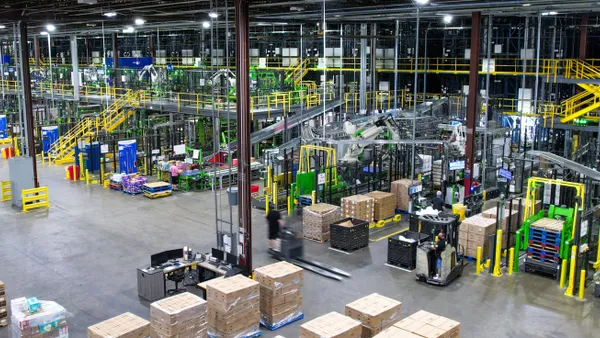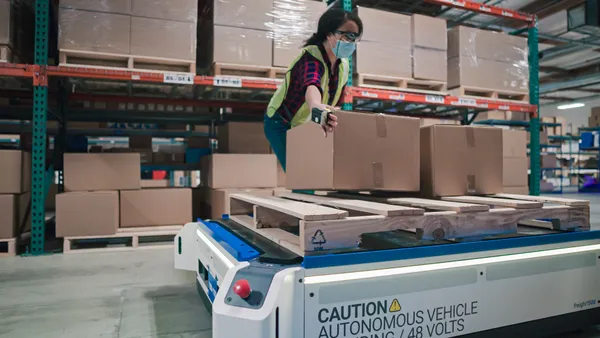Dive Brief:
- One-third of decision makers across manufacturing industries say they lack the capital needed to invest in automation, creating a hurdle to adopting the technology, according to a survey by L.E.K. Consulting.
- In addition to financial limitations, some manufacturers (31%) do not see significant return on investment (ROI) from incremental automation.
- Aside from financial concerns, respondents to L.E.K.'s survey indicated an additional barrier is a lack of employees who are trained to use automation.
Dive Insight:
Manufacturers are an optimistic group when it comes to adoption of technology, L.E.K. wrote in its survey, but barriers still stand between the desire to implement automation and the ability to do so.
Financial impediments represent some of the biggest hurdles. While automation costs have decreased as technology has improved and developed, investing in automation still requires a significant amount of up front capital.
Smaller manufacturers in particular may be hamstrung by smaller budgets, making it difficult to implement automation, which then results in their businesses falling farther behind in production and efficiency.
Aside from capital, if an investment is made in automation, operations and facilities managers often feel pressure to deliver a measurable ROI.
The soft benefits to automation are evident, including increased efficiency or better working conditions for employees, and these gains come quickly after implementation. But lowering costs remains a top priority for more than half of manufacturers, according to L.E.K.'s survey. While many investments in automation will ultimately reduce costs in the long run, monetary gains may take time to be realized.
Without an immediate ROI from automation investments, it may be difficult for facilities managers to make the business case to invest in this emerging technology.












